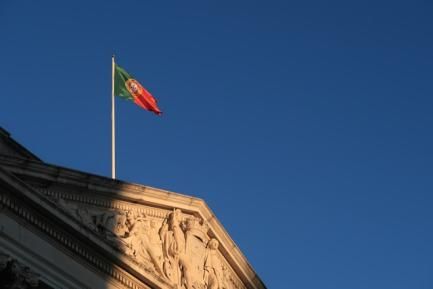
In Portugal, the war in Ukraine (also) means a setback in the current account deficit
Expectations that the control of the pandemic and economic growth would allow the current account deficit to be reduced in 2022 have been frustrated by the outbreak of the conflict in Ukraine. On the contrary, the impact that this conflict is having on the rise in the price of imported goods and on the demand from some of Portugal’s main trading partners is only accentuating the deterioration of the deficit which we have witnessed in recent years, thus causing the long-awaited correction to be postponed until 2023.
Firstly, the rise in energy prices will exacerbate the deficit in the energy balance, which in 2021 reached 5,776 billion euros. This was the biggest deficit since 2014 and was driven by the rise in energy prices, as well as by the increase in purchases of oil and gas associated with the resumption of activity. In the absence of substitutes, the demand for energy goods is relatively rigid, so no significant reduction in the quantities imported is expected. To provide an idea of the sensitivity of the current account balance to movements in energy prices, generally speaking a 10-dollar-per-barrel rise in the price of Brent and a 20-euro-per-megawatt increase in that of gas would typically cause net energy imports to increase by around 4.7 billion euros (around 2% of GDP). Taking these assumptions into account, we estimate that the energy deficit will expand to around 12 billion euros in 2022, exceeding the 8 billion registered in 2008.

Secondly, although trade relations with Ukraine and Russia are relatively small (imports from these countries account for 0.4% and 1.3% of the total goods imported by Portugal, respectively), these countries have a significant relative weight in some supplies: 13% of all imports of coke and petroleum products come from Russia, while 35% of corn and 31% of sunflower oil come from Ukraine. Moreover, the war will also affect trade flows with other economies, as a result of declining demand from major trading partners.
Thirdly, there is the tourism balance, which showed promise in 2021 by recovering to a surplus of around 6.4 billion euros, approximately 50% of the surplus registered in 2019. This encouraging performance accelerated in the first two months of the year, with a surplus of 1,118 million euros, just 100 million less than in the same period of 2019. On the other hand, the role of Russian tourism is relatively minor in Portugal, accounting for around 1% of the total, in terms of both visitor numbers and the total expenditure by non-resident visitors (2019 data). While we are aware of the high degree of uncertainty surrounding how the conflict will impact European tourism (the majority of tourists visiting Portugal come from European countries), the indicators for March and April show us that Portugal will benefit from its perception as a safe destination. Therefore, in a cautious scenario we expect that the tourism surplus will reach around 80% of the level registered in 2019, bringing it to around 10.2 billion euros.

In short, we expect the tourism balance to offset some of the deterioration in the balance of goods, which will be primarily driven by the worsening of the energy deficit. However, this will be insufficient to prevent a deterioration in the current account deficit, which in 2022 could reach 2.2% of GDP, 1.1 pp higher than in 2021. Thus, the improvement in Portugal’s current account to a more balanced position will be postponed until 2023. In that year, if oil and gas prices do not veer too far off their expected course, and if tourism continues to recover to pre-COVID-19 levels, we estimate that the current account deficit could be reduced to around 0.5% of GDP.


